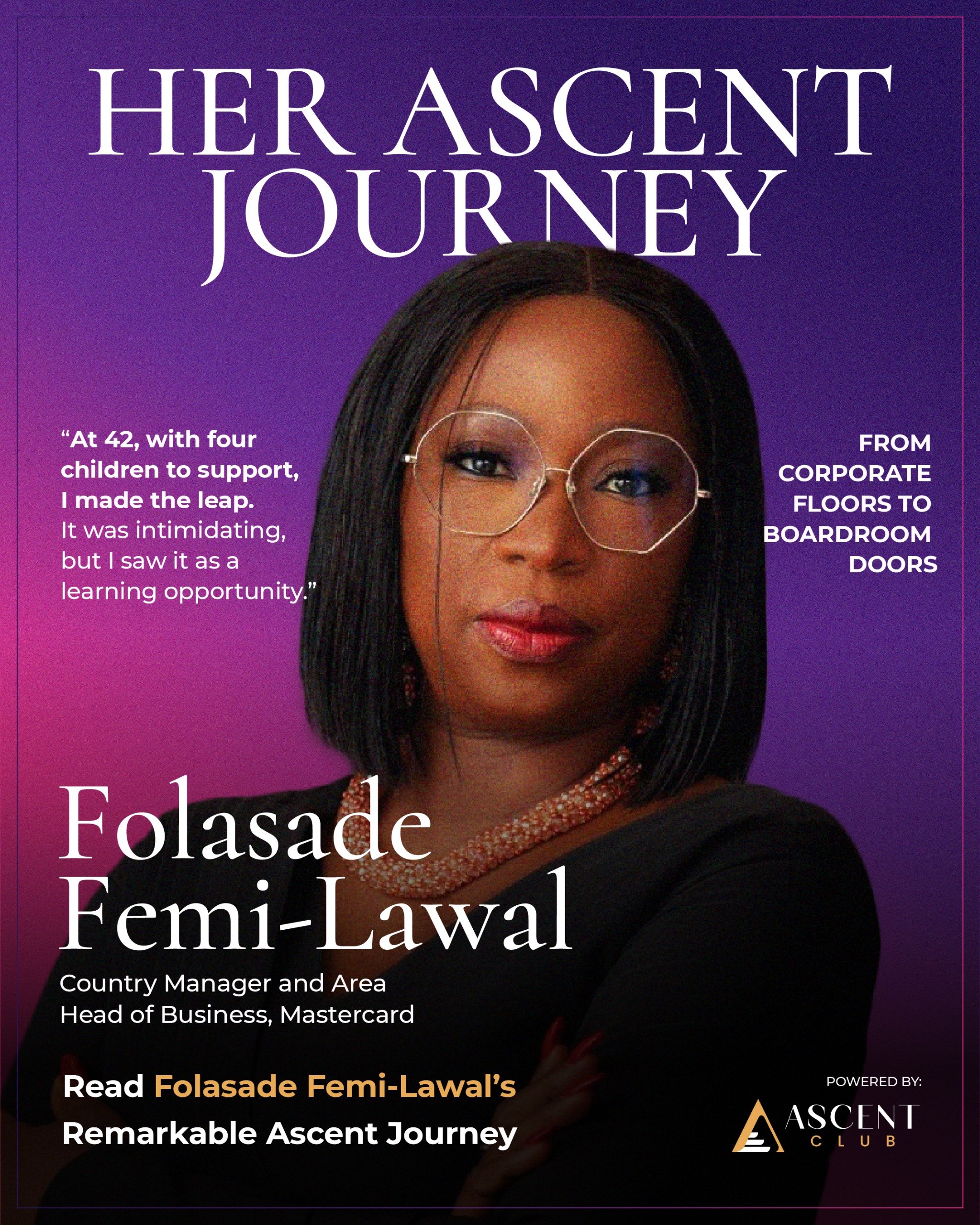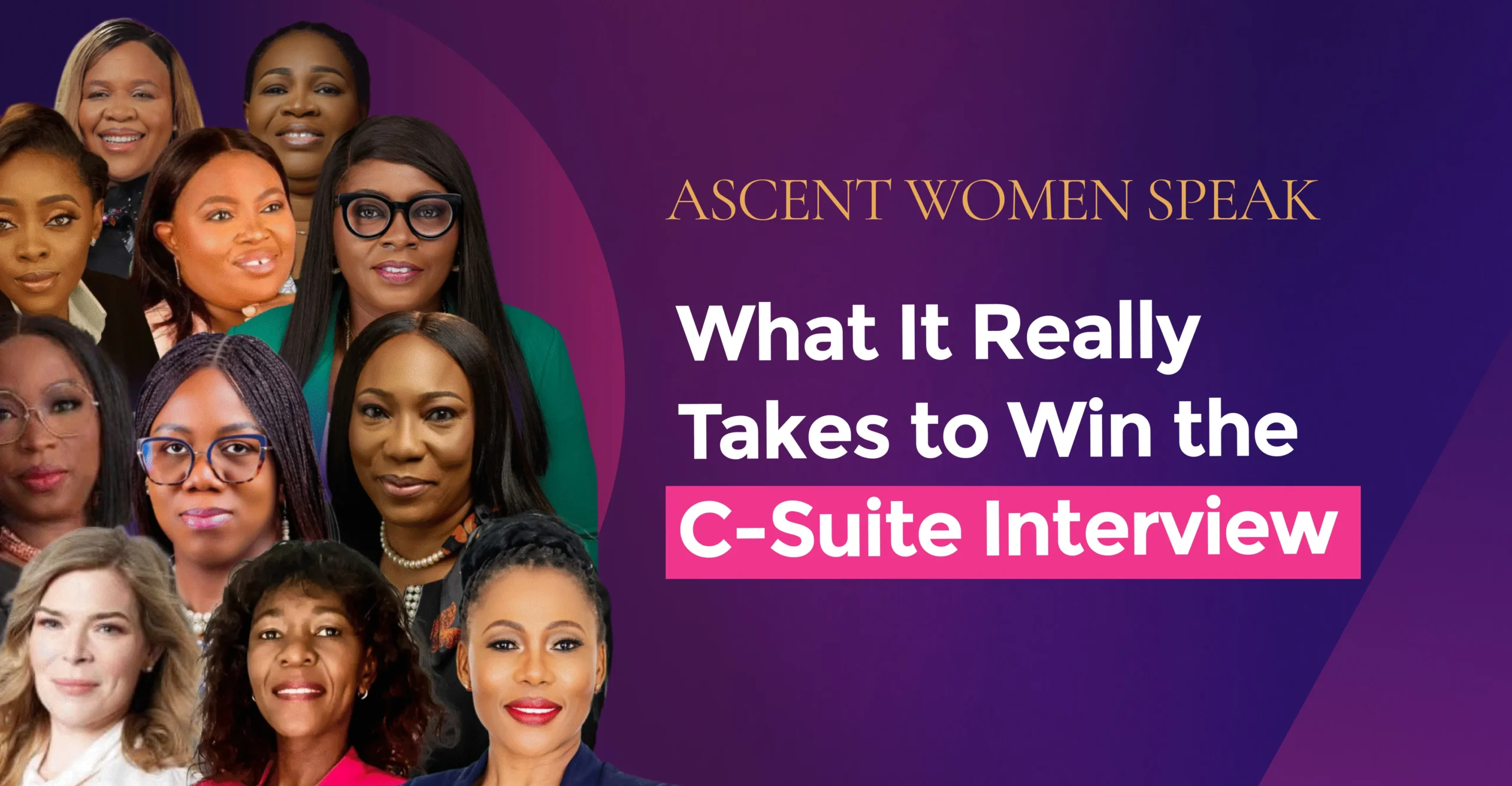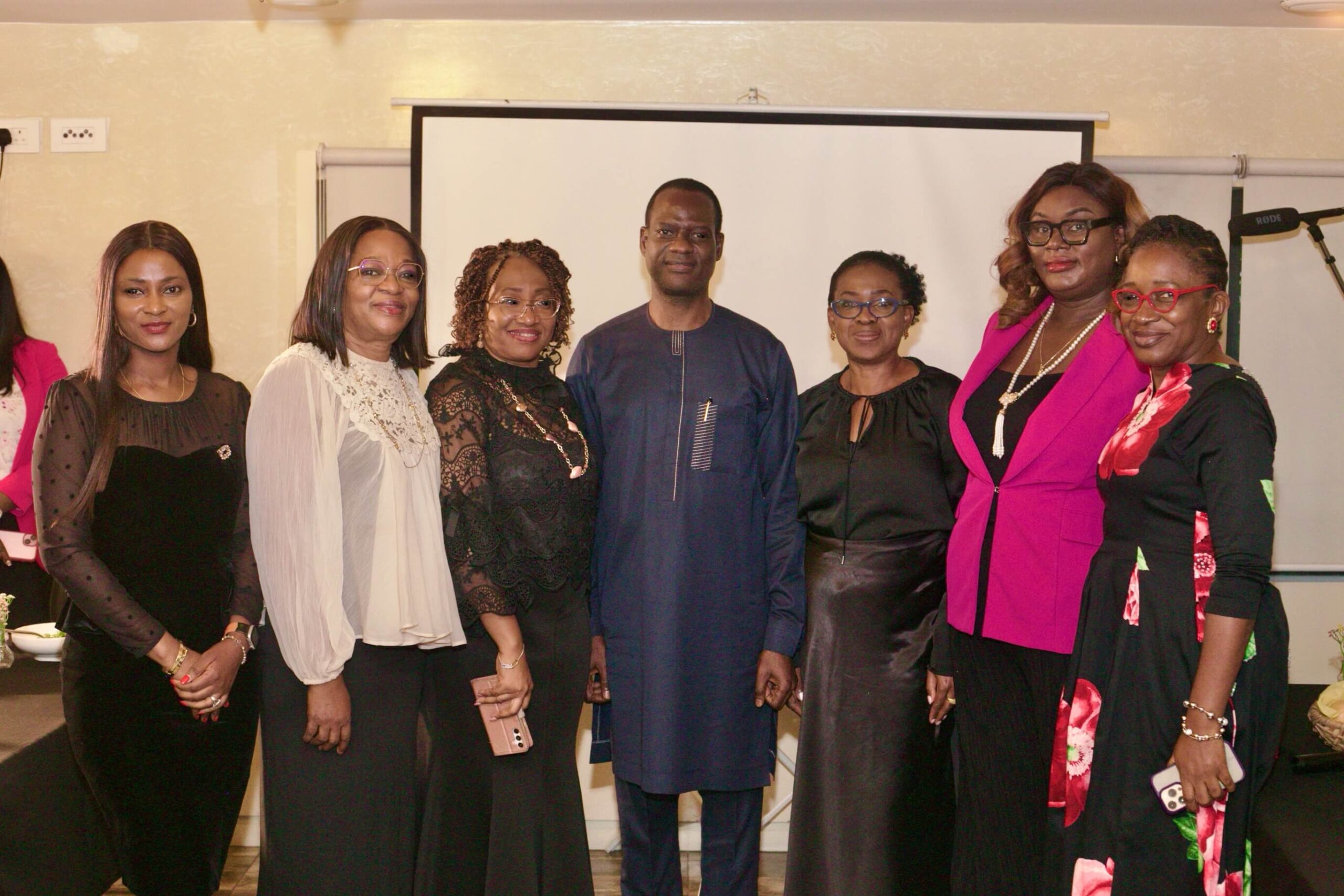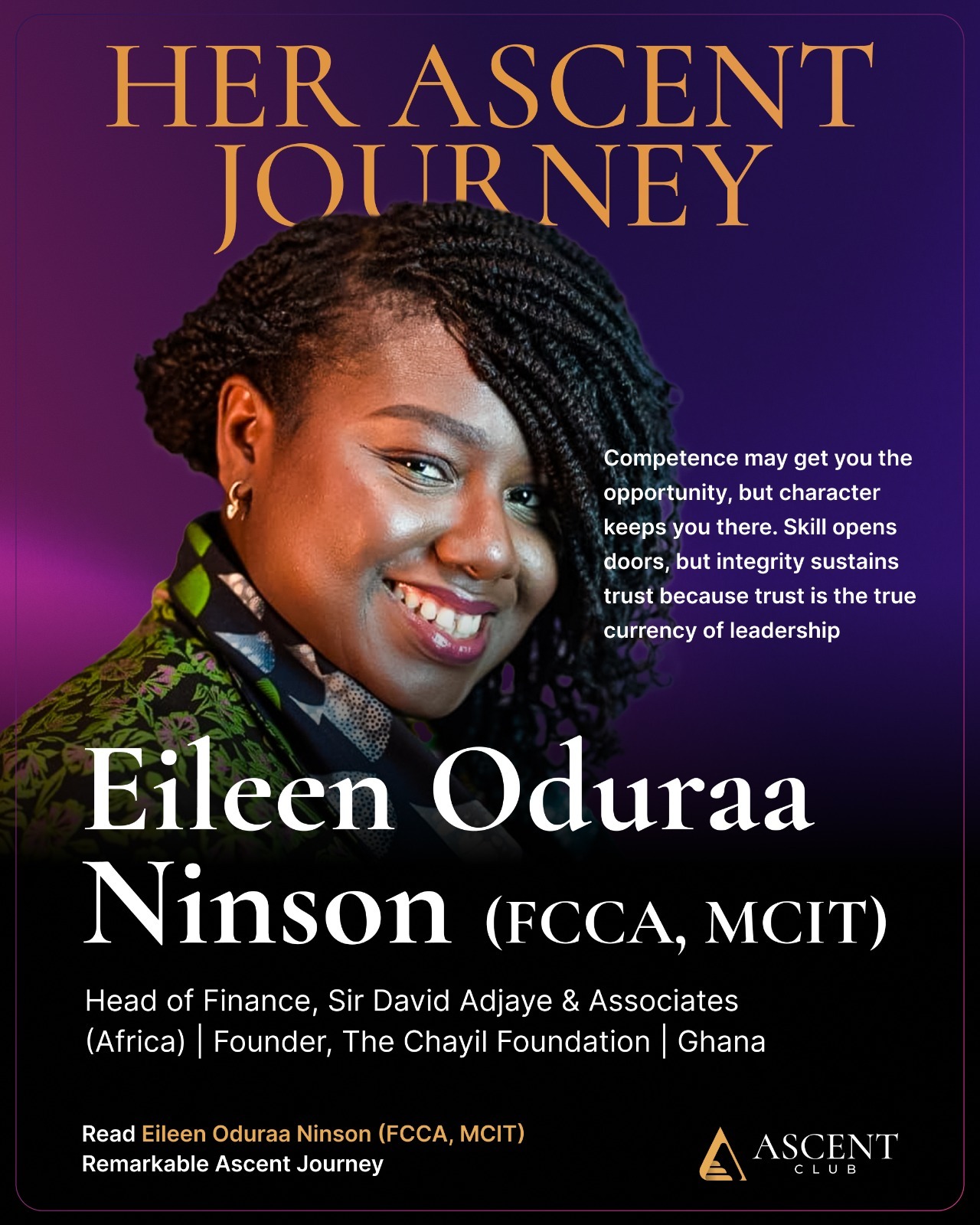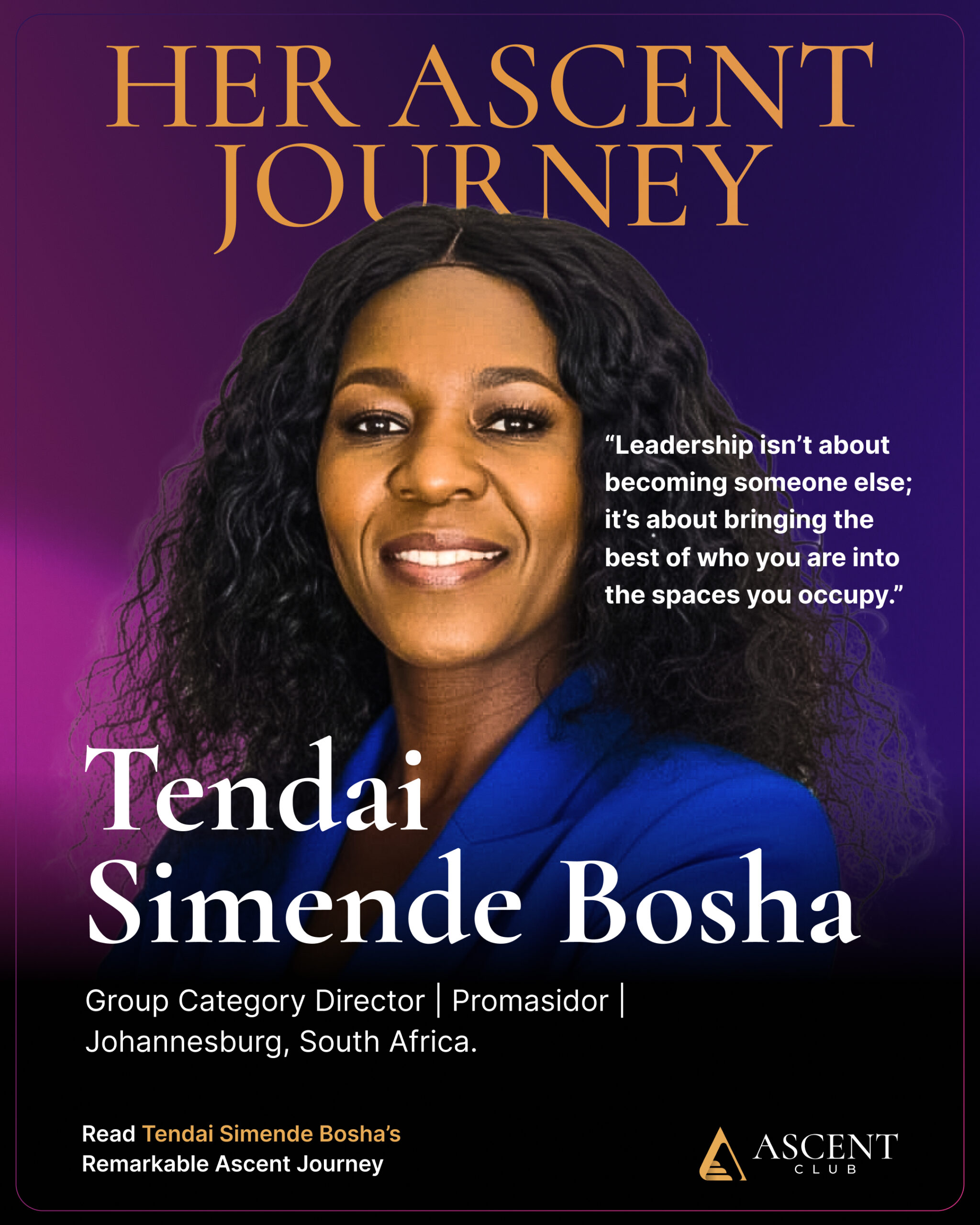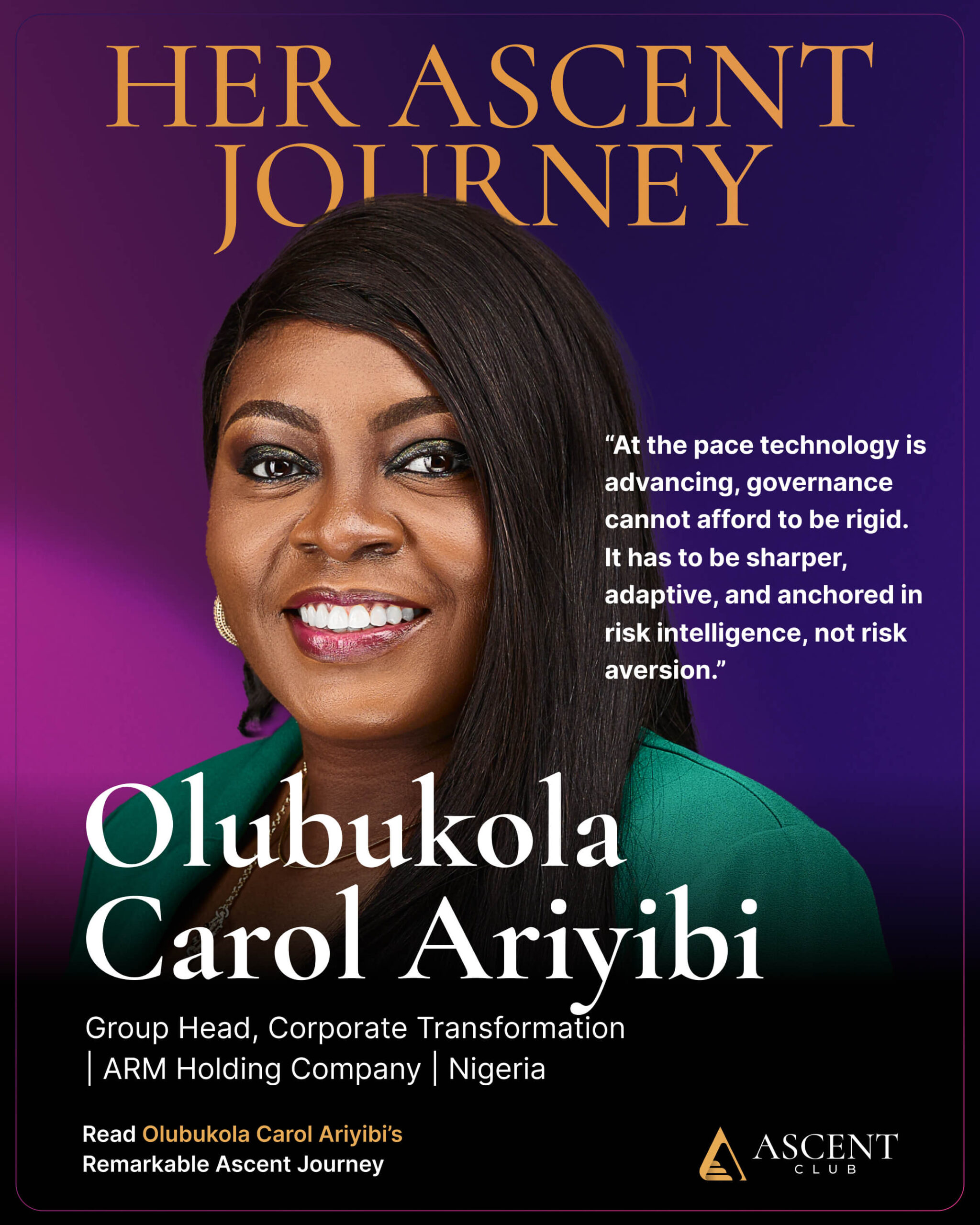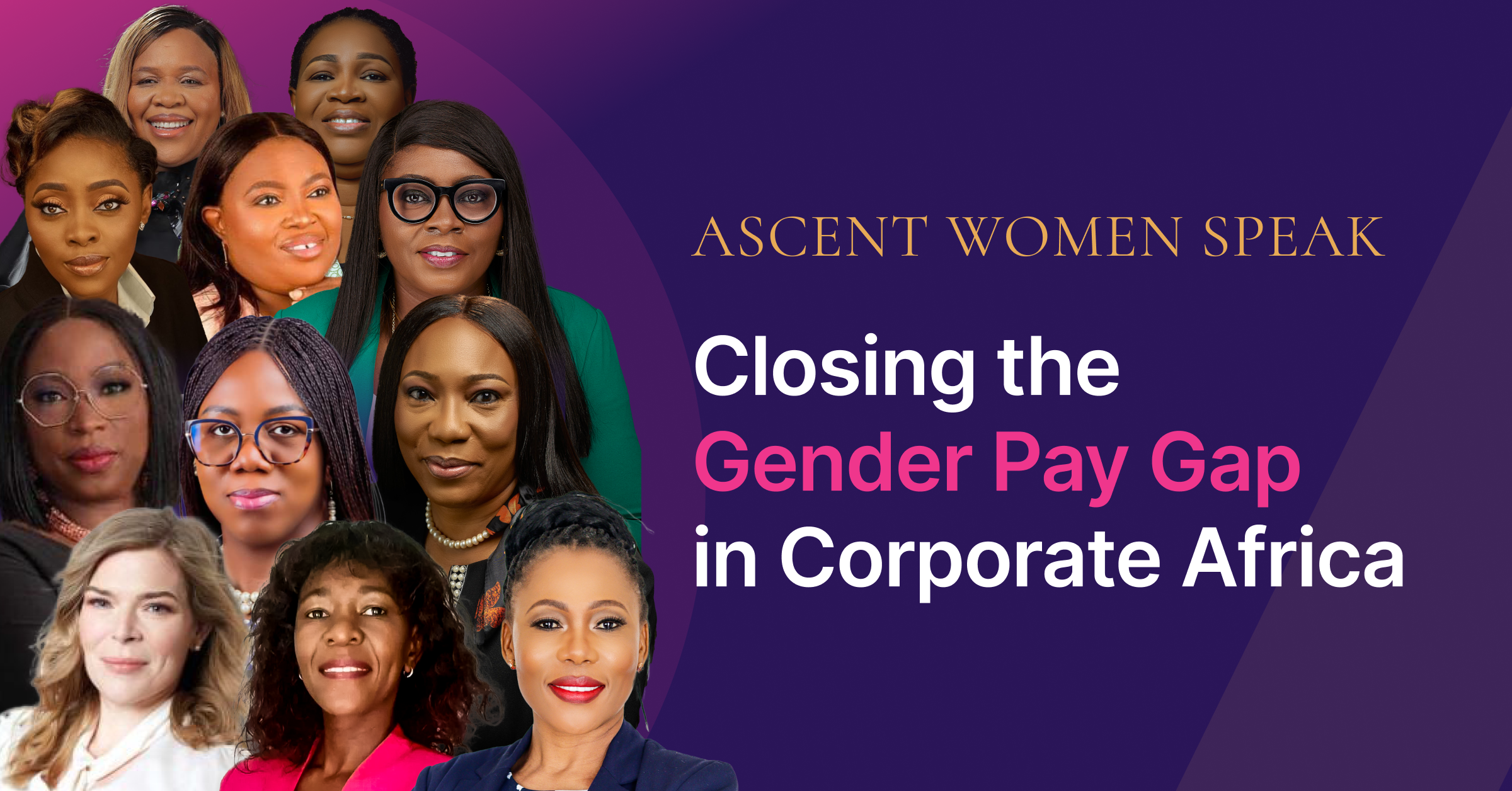“At 42, with four children to support, I made the leap. It was intimidating, but I saw it as a learning opportunity.” — Folasade Femi-Lawal
Folasade Femi-Lawal is a seasoned Senior Executive and Harvard Business Executive Education-trained Digital Payment expert with over 25 years of experience spanning Retail Banking, Business Advisory, and Telecoms. She currently leads as the Country Manager and Area Head of Business, West Africa, at Mastercard and serves as Chairman of the Board.
Her journey has taken her through leadership roles in First Bank and United Bank of Africa, with a pivotal shift from banking to fintech at a stage many might consider too risky. With a passion for financial inclusion and a commitment to empowering women leaders, Folasade shares her candid insights on navigating the C-suite and thriving through change.
What have been your top lessons entering the C-suite/getting on Boards? What advice would you give to women starting this journey?
One of the most important lessons I’ve learned is that your network is your net worth. But it goes deeper than just knowing people, it’s about building what I call relationship collateral. This means investing in authentic connections rooted in trust and mutual respect. It’s not about checking boxes or flaunting accolades. Being genuine, showing up as your true self, and nurturing relationships pays off more than you realize.
My advice to women stepping into leadership is to stop sweating the small stuff and keep your eyes on the bigger picture. Be strategic about where you invest your time and energy. Think about how you can bring value not just to your work, but to the people around you. That mindset shifts your entire leadership experience.
Can you share a story of how your philosophy of relationship-building helped during a challenging time?
Definitely. There was a moment when I was asked to host Amanda Pullinger, the global CEO of Wonder Women in Finance, with less than three weeks’ notice. At first, I thought, there’s no way I can pull this off. The pressure was real. But instead of saying no, I reached out to my network for help.
Glory Edozien and a few incredible colleagues stepped up immediately, and together we organized an event that was not just successful, it was packed to capacity.
That experience was a powerful reminder that relationships aren’t just nice to have — they are the foundation of success, especially when things get tough.
You transitioned from banking to fintech, a significant shift. What prompted this change, and how did you handle it?
Making the leap from banking to fintech was one of the scariest and most exciting decisions of my life. I had a thriving career in retail banking, but I saw how fast digital finance was transforming the industry.
At 42, with four children depending on me, it felt like a huge risk. The fear was real. But I chose to see it as a learning opportunity rather than a threat.
Having a strong support network and a willingness to adapt made the transition smoother than I expected. Now, months into my role at Mastercard, I can confidently say it’s been one of the best decisions I’ve ever made.
How does your passion for financial inclusion shape your work at Mastercard?
Financial inclusion is at the heart of everything I do. At Mastercard, we work with financial institutions, fintech companies, and regulators to build digital payment solutions that meet real market needs.
Our mission is to empower people and economies by creating an inclusive digital ecosystem where everyone can participate and benefit. This isn’t just about business, it’s about building a sustainable future where financial services are accessible to all.
What advice would you give to women aspiring to leadership roles?
Be unapologetically yourself. Authenticity is your superpower.
Build genuine connections and always look for ways to add value, not just for your own gain, but to lift others as you climb.
Comparison is the enemy of joy, so resist it fiercely. Stay curious, keep learning, and never stop pushing your boundaries. Leadership is a continuous journey of growth, and your commitment to self-development will be your greatest asset.
How has investing in relationships impacted your career success?
My relationships are hands down my greatest asset. They have opened doors I never expected.
For example, when I had to organize that high-profile event on short notice, it was my network that made it possible.
But it’s not just about knowing people. It’s about creating bonds built on trust and respect that stand the test of time.
What does relationship-building look like in the C-suite, and how have you developed emotional intelligence?
In the executive suite, relationship-building means genuine respect and understanding. It’s about knowing what matters to the people you work with, their goals, challenges, and how your objectives intersect.
Small, consistent acts like regular check-ins and thoughtful conversations create deep connections.
Emotional intelligence is the foundation of my leadership style. Being self-aware, empathetic, and an active listener allows me to respond thoughtfully, manage my emotions, and build trust with my team.
Looking back, what’s one thing you wish you had known earlier in your career?
I wish I had known how valuable taking risks is.
Playing it safe feels comfortable and secure, but it’s often a trap that limits growth.
The real breakthroughs come from stepping outside your comfort zone and embracing uncertainty. Looking back, the moments I took those leaps were the moments that propelled me forward.
Conclusion
Inspired by Folasade’s journey? Subscribe to our Ascent newsletter for exclusive insights, practical strategies, and growth tips crafted for women aiming for C-suite and boardroom success.
Don’t miss out — start elevating your leadership journey today.

